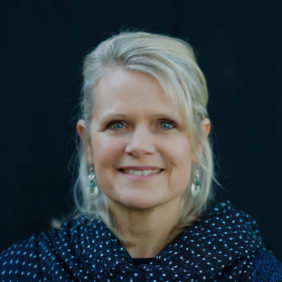When I was turning 10 or 11 years old, my greatest wish was to be popular. I remember inviting the queen bee of the popular girls in my class – her name was Katy – to my birthday party. It wasn’t because I actually liked her or felt happier in her presence, Rather, it was the social status I thought I could achieve by having her attend my party. You see, like most queen bees, Katy was both popular and powerful. Whatever she decided to do in terms of accepting or declining my invitation, all the other popular girls in our class would follow her lead.
Fast forward to today and I’m anticipating another birthday next month. I’ve been reflecting lately on the wishes and actions of 10 year old me vs. wishes and actions of the adult me. Do I still wish to be popular? Yes, actually I do – just not exactly in the same way.
I want my ideas to become popular now. I wish for far broader acceptance of the idea that great leadership is inclusive, equity-minded, authentic and trauma-informed – for The Learn Lead Lift Framework to be globally recognized as the gold standard for leadership.
Many leaders face a similar dilemma. Today, we live in a world where ideas can be transmitted instantaneously via social media – whether they are fully-formed, or beneficial or even harmful to others.
Running your ideas through a framework such as The Four Containers before you share them publicly on social channels forces you to pause and think more before you communicate. In my experience, that’s always a good thing!
But what happens when sharing and advocating for well-considered ideas means your personal popularity or your brand may take a hit?
Wanting people to like you or your brand makes it more difficult to share ideas that challenge the status quo – whether those ideas originate with you or someone else.
June is Pride Month, and at Kadabra we will continue to publicly celebrate and affirm LGBTQ+ identifying people and their communities. We do this in numerous different ways every day of the year, both large and small. From simple gestures, like incorporating our preferred pronouns into our email signatures and team member bios on our website, to more complex ones like being purposeful in hiring LGBTQ+ led companies as our vendors and partners, we practice intentional allyship – albeit imperfectly.
Unfortunately, not everyone agrees with us yet that practicing allyship or speaking out against exclusionary policies and actions is appropriate for a business to do or even necessary – despite ample empirical evidence to the contrary. The most visible examples might be negative online and IRL protests and in some cases punitive governmental actions directed toward Disney and Target.
If there was a popularity contest happening right now for major brands, some would say that Disney and Target are losing ground. We can choose this moment to reflect and learn something new about ourselves and our organizations.
Pause and ask yourself these six questions:
- To what extent do I value my personal popularity? My organization’s?
- How does that inform my decision making today to practice allyship relative to other factors (e.g. financial risk)
- If some people decided not to do business with me because I practiced allyship, how would I feel?
- If some people decided not to do business with my organization because we took a public position against exclusionary actions or policies, how might that impact us?
- What values do I hold that matter more to me than my personal popularity?
- What values does my organization hold that matter more to it than our brand’s popularity?
I think you will find the answers to these questions very illuminating, and in some cases, a bit uncomfortable. If that happens, take it as a positive sign that you’ve found a growth edge. Great leadership the Learn Lead Lift® way is all about discovering our growth edges and working with, not against them to propel ourselves and our organizations forward. We may not all get to experience life as a queen bee, like my classmate Katy did all those years ago, but all of us can learn and grow in our leadership if we choose to do so.
If you’d like to go deeper or start a conversation with me about this topic, email hello@wearekadabra.com or download our Self-Awareness Bundle available on our website under the “Becoming a Self-Aware Leader” section today.


 Heather Leavitt-Martinez (she/her/hers) – Senior Product Manager
Heather Leavitt-Martinez (she/her/hers) – Senior Product Manager Wendy Ryan (she/her/hers) – CEO
Wendy Ryan (she/her/hers) – CEO Shawn Bunger (she/her/hers) – Senior Consultant
Shawn Bunger (she/her/hers) – Senior Consultant Crystal Whiteaker (she/her/hers) – Senior Consultant
Crystal Whiteaker (she/her/hers) – Senior Consultant Gail Finger (she/her/hers) – Senior Consultant
Gail Finger (she/her/hers) – Senior Consultant Monica Silkwood (she/her/hers) – Director of Operations and Experience
Monica Silkwood (she/her/hers) – Director of Operations and Experience Johanna Lyman (she/her or they/them) Senior Consultant
Johanna Lyman (she/her or they/them) Senior Consultant Sherri Horan (she/her/hers) – Senior Consultant
Sherri Horan (she/her/hers) – Senior Consultant
